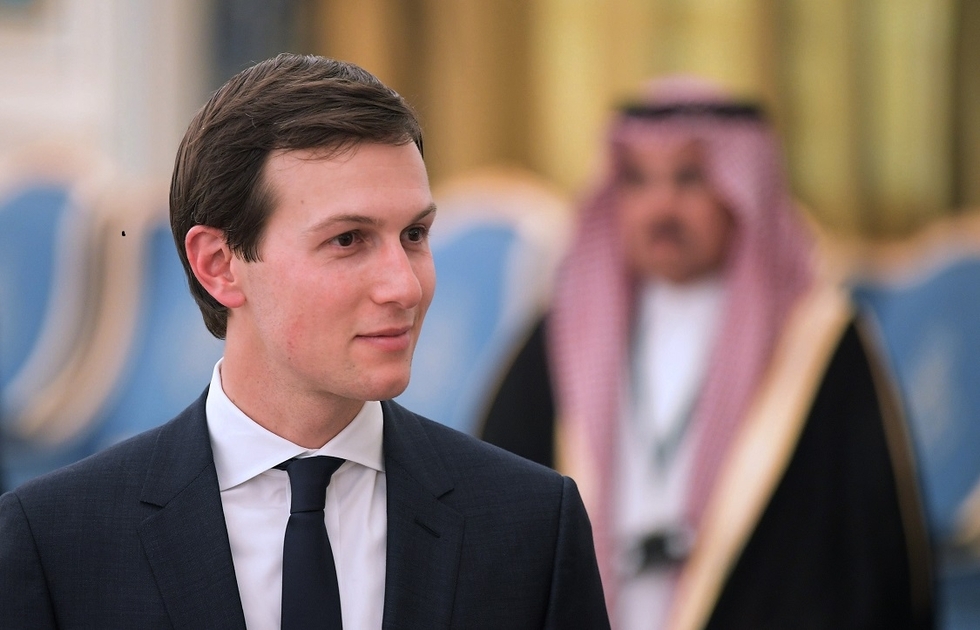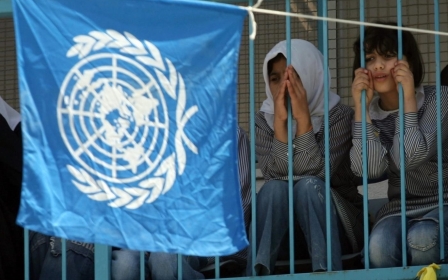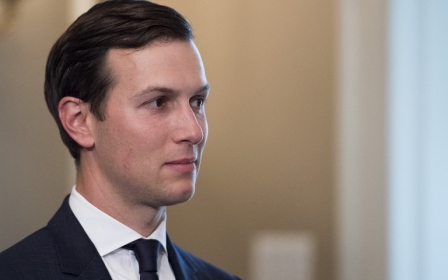Top US officials to tour Gulf ahead of release of Israel-Palestine peace plan

White House senior adviser Jared Kushner will travel to at least five Arab countries in late February to brief diplomats on the economic portion of a long-awaited US peace proposal for Israel and the occupied Palestinian territories, US officials familiar with the trip told Reuters.
Kushner, President Donald Trump's son-in-law, along with US Middle East envoy Jason Greenblatt, plan to make stops in Oman, Bahrain, Saudi Arabia, the United Arab Emirates and Qatar on their week-long trip, two senior White House officials said on Thursday.
They may add two other countries to their itinerary.
Jared Kushner & I had a great meeting yesterday with @MBA_AlThani_ We discussed issues of mutual concern and how we can better work together toward the shared goal of Israeli/Palestinian peace. Qatar is an important partner, & we look forward to continuing our strong relationship
— Jason D. Greenblatt (@jdgreenblatt45) February 6, 2019
Kushner and Greenblatt, joined by State Department envoy Brian Hook and Kushner aide Avi Berkowitz, will not brief the diplomats on the "political component" of the peace plan, which covers all core issues of the decades-old conflict between Israel and the Palestinians, the officials said.
New MEE newsletter: Jerusalem Dispatch
Sign up to get the latest insights and analysis on Israel-Palestine, alongside Turkey Unpacked and other MEE newsletters
Instead, they will gauge the level of support for the economic part of the plan, which is expected to include a combination of aid and investment to help the Palestinian people, the officials said.
“Jared is going to share elements of the economic plan to the region. The economic plan only works if the region supports it," said one official who briefed a small group of reporters.
"This is a very important part of the overall equation,” the official added.
Details of the US plan for aid and investment for the Palestinians currently remains unknown.
A Palestinian Authority spokesman told Bloomberg news on Wednesday that the PA is willing to "negotiate immediately" if the US endorses the pre-1967 borders.
Seeking regional support for the economic plan is a step towards the eventual unveiling of Trump's sweeping proposals to resolve the Israeli-Palestinian conflict. The economic plan is widely expected to include international funding proposals for the impoverished Gaza Strip.
Officials said they realised that the Arab diplomats Kushner meets will want to know elements of the political component before rendering a judgment on the economic plan.
“They’re not going to support the economic plan without making sure they also support the political plan, and we recognise that. So the support, I’m sure in some manner, will be conditioned on whether they are comfortable with the political plan," one official said.
The release of the Trump peace plan was delayed after Palestinians erupted in anger when Trump recognised Jerusalem as the capital of Israel in December 2017 and moved the US embassy there.
The current thinking among White House officials is that the peace plan will be unveiled sometime after Israel holds elections on 9 April that will decide the fate of Israeli Prime Minister Benjamin Netanyahu.
It remains unclear how the US plan will deal with the sensitive issue of Jerusalem. Palestinians want the city’s eastern part as their future capital. Kushner is not visiting Israel on this trip, the officials said.
Palestinian President Mahmoud Abbas has refused to talk about any peace plan with the United States in the wake of Trump's recognition of Jerusalem, but White House officials hope that will change.
"We hope Abbas reads the plan, judges it on its merits and comes to the table for negotiations after we release the plan. His people deserve nothing less," one official said.
US officials, meanwhile, have been meeting with Palestinians "from all walks of life" to keep lines of communication open, the official said.
Middle East conference in Poland
Meanwhile, the Palestinian government on Thursday rejected a US-led conference on Middle East peace and security due to take place next week in Warsaw, branding it an "American conspiracy".
The joint US-Polish conference, which was announced last month by US Secretary of State Mike Pompeo, will be held on 13-14 February and host ministers from around the globe.
The Palestinians were not invited to the meeting amid the breakdown of relations with the United States, though the Israeli-Palestinian conflict may be discussed.
Among those expected to attend are Netanyahu, as well as Trump, Kushner, Greenblatt and Pompeo.
In a statement, the Palestinian foreign ministry labelled the meeting "an American conspiracy intended to get the participants to adopt the US views on issues of the region, particularly the Palestine question".
It said the Palestinian government would ignore all conclusions made at the conference.
The ministry also criticised Trump for hailing the US embassy move to Jerusalem in his State of the Union address Tuesday.
"The malicious intentions of this administration were reiterated by US President Donald Trump in his State of the Union speech to Congress in which he stressed continuing with the policy of absolute bias toward Israel," said the statement carried on official Palestinian news agency Wafa.
Middle East Eye delivers independent and unrivalled coverage and analysis of the Middle East, North Africa and beyond. To learn more about republishing this content and the associated fees, please fill out this form. More about MEE can be found here.




